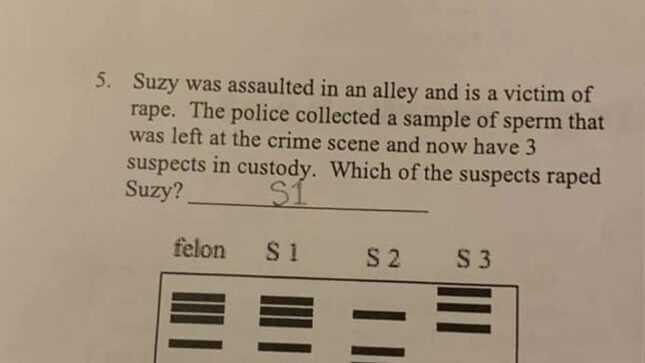Biology Test Asks High School Freshman to Solve a Rape
Latest

Considering the fact that an alarming number of high schools and colleges refuse to investigate or address campus sexual assault, it seems awfully shitty to ask high school freshmen to do so for a grade.
However, that is exactly what one biology teacher at Klein Collins High School just outside of Houston, Texas did, sending 90 high school freshman home with an assignment that included the question:
“Suzy was assaulted in an alley and is a victim of rape. The police collected a sample of sperm that was left at the crime scene and now have 3 suspects in custody. Which of the suspects raped Suzy?”
-

-

-

-

-

-

-

-

-

-

-

-

-

-

-

-

-

-

-

-

-

-

-

-

-

-

-

-

-

-

-

-

-

-

-

-

-

-

-

-








































